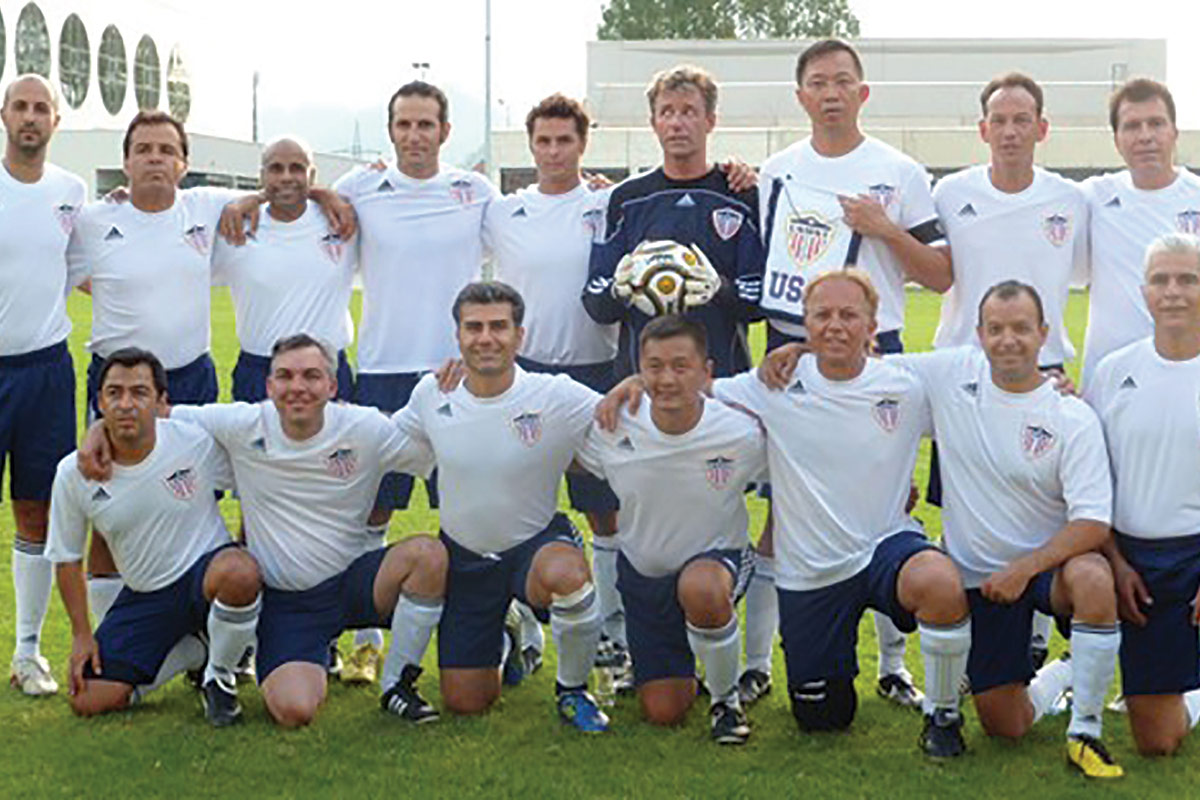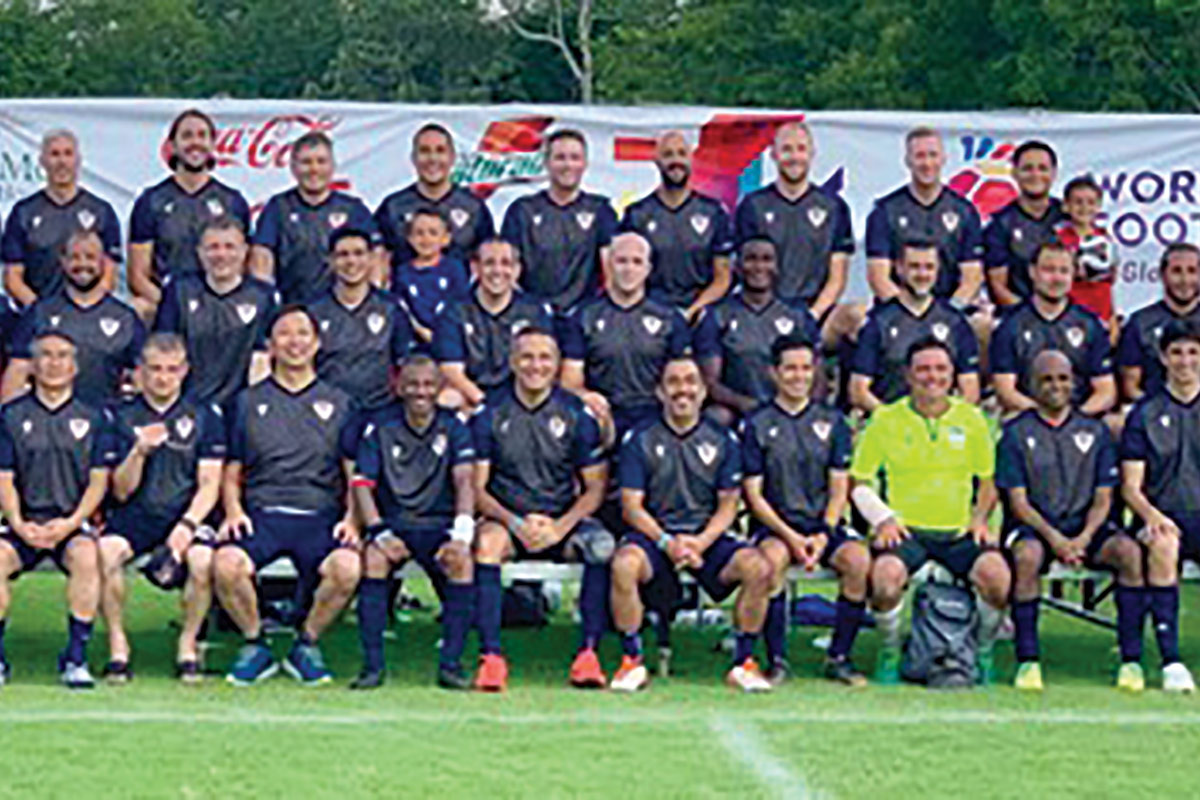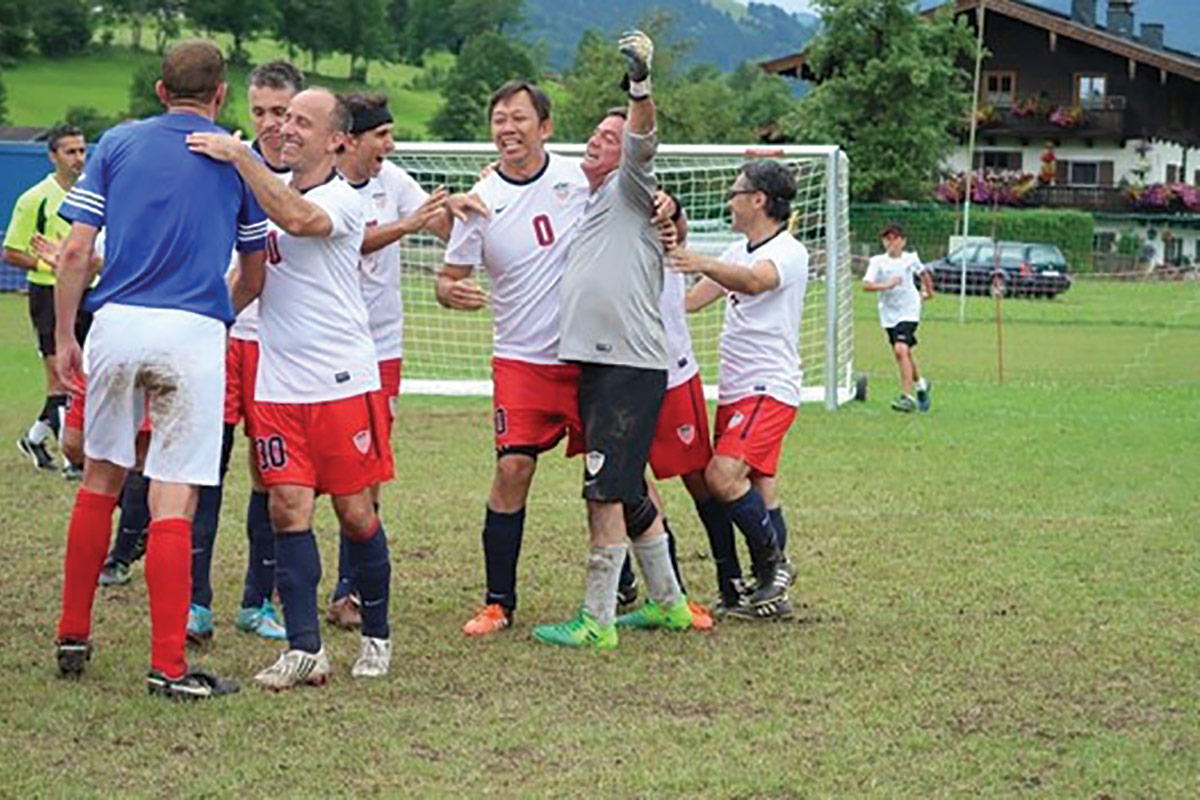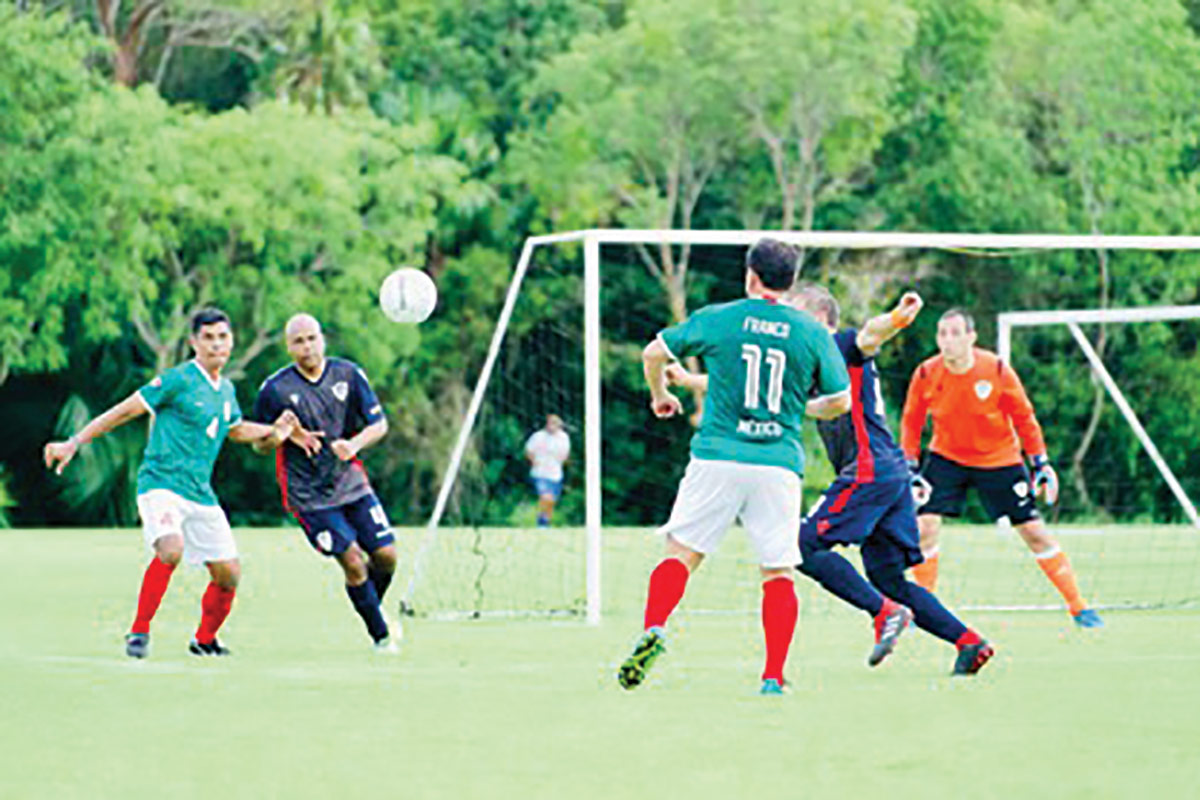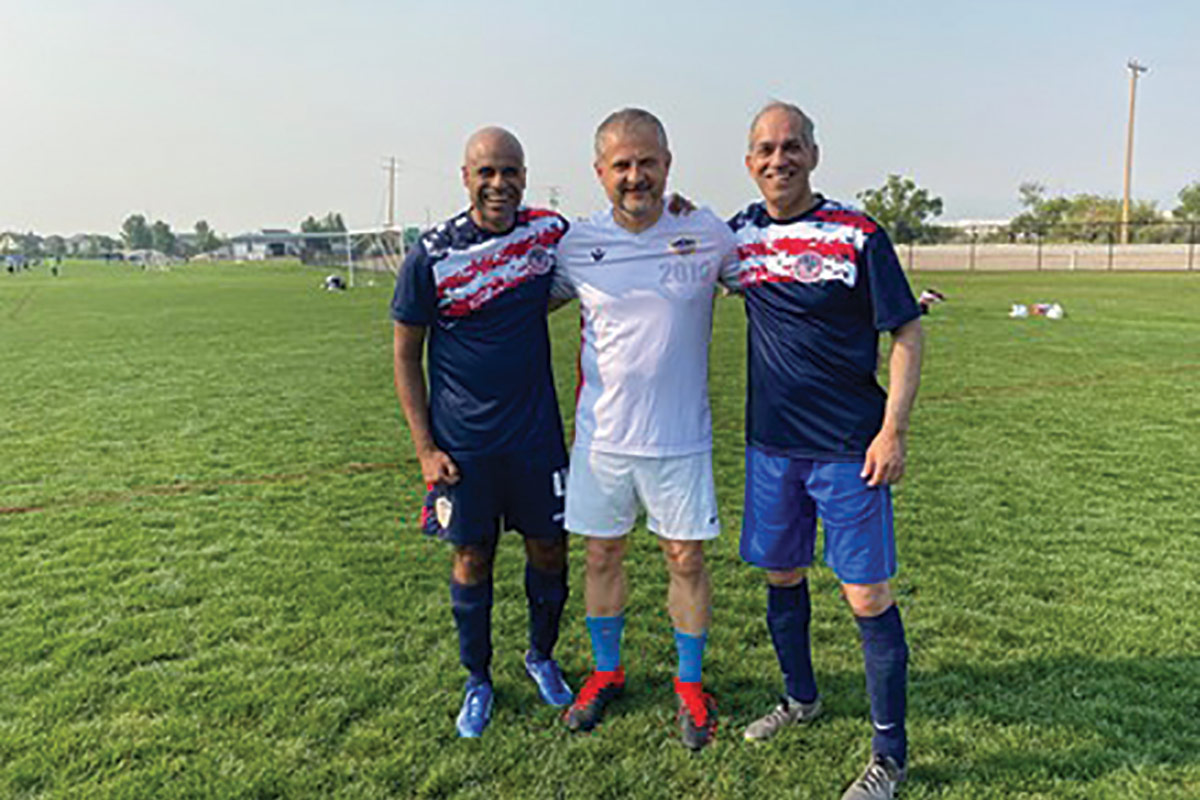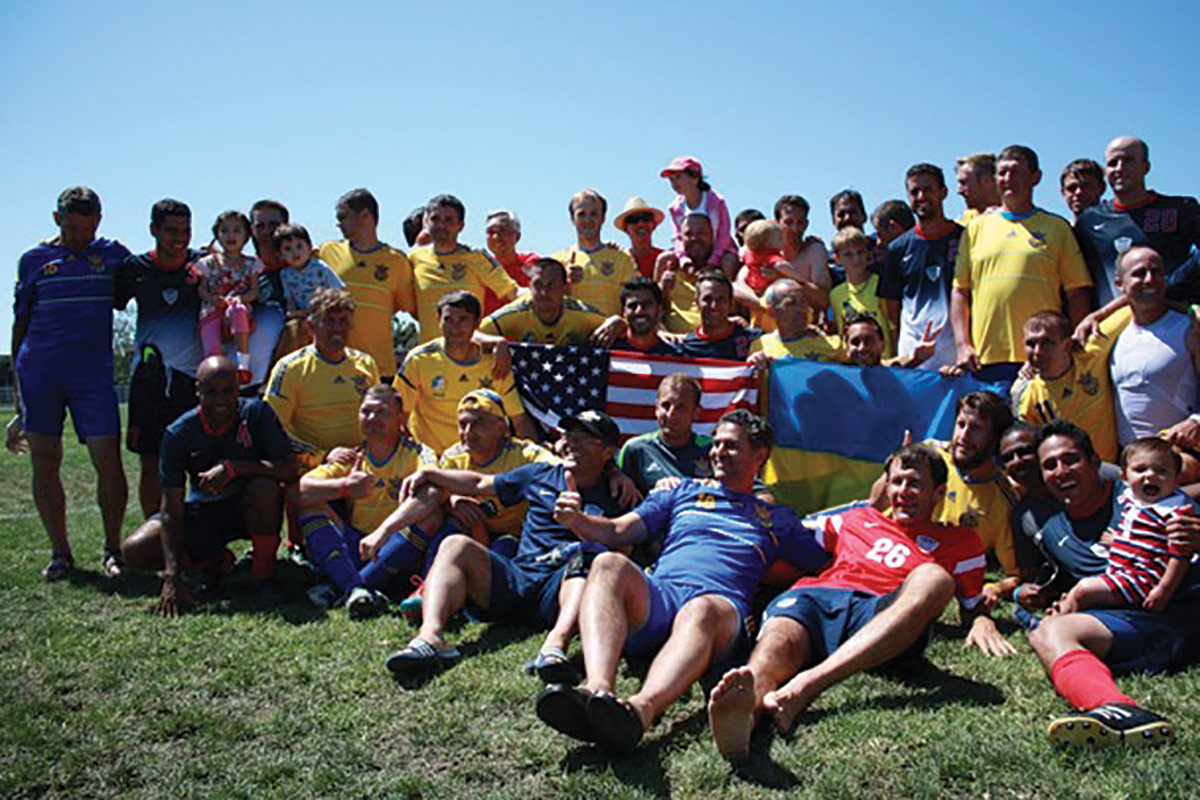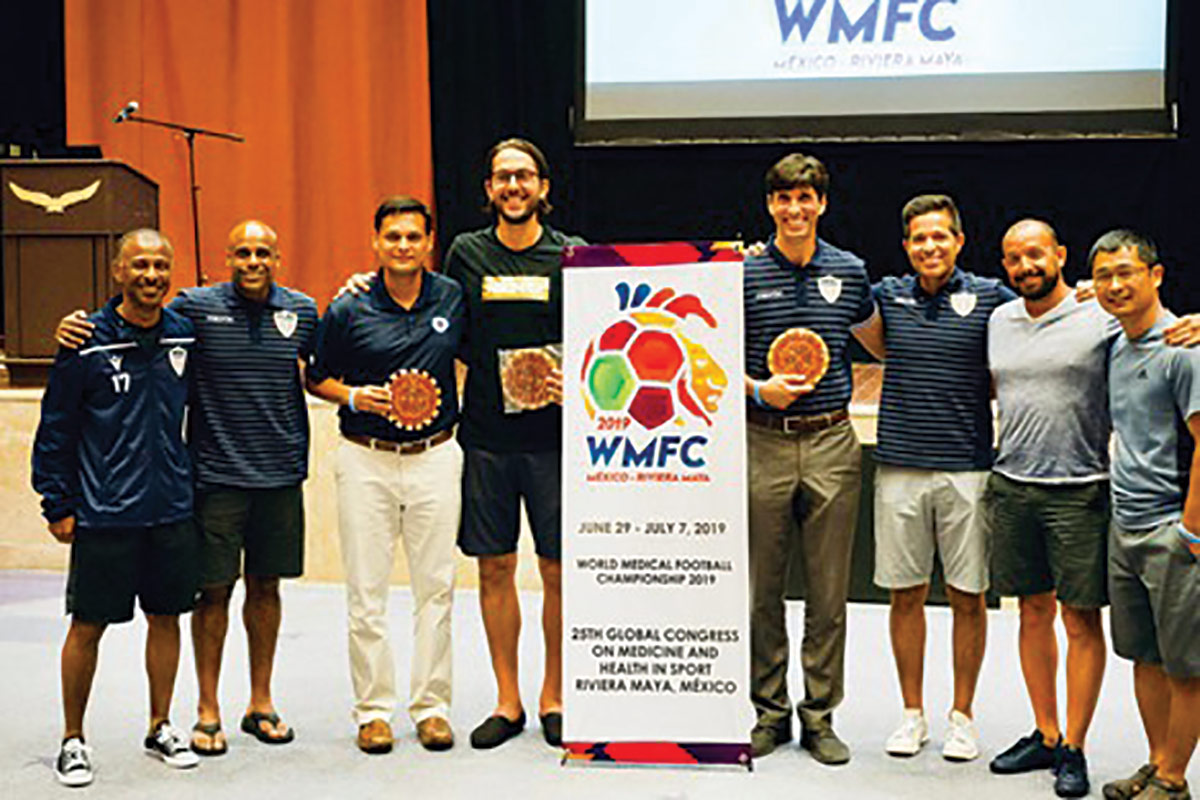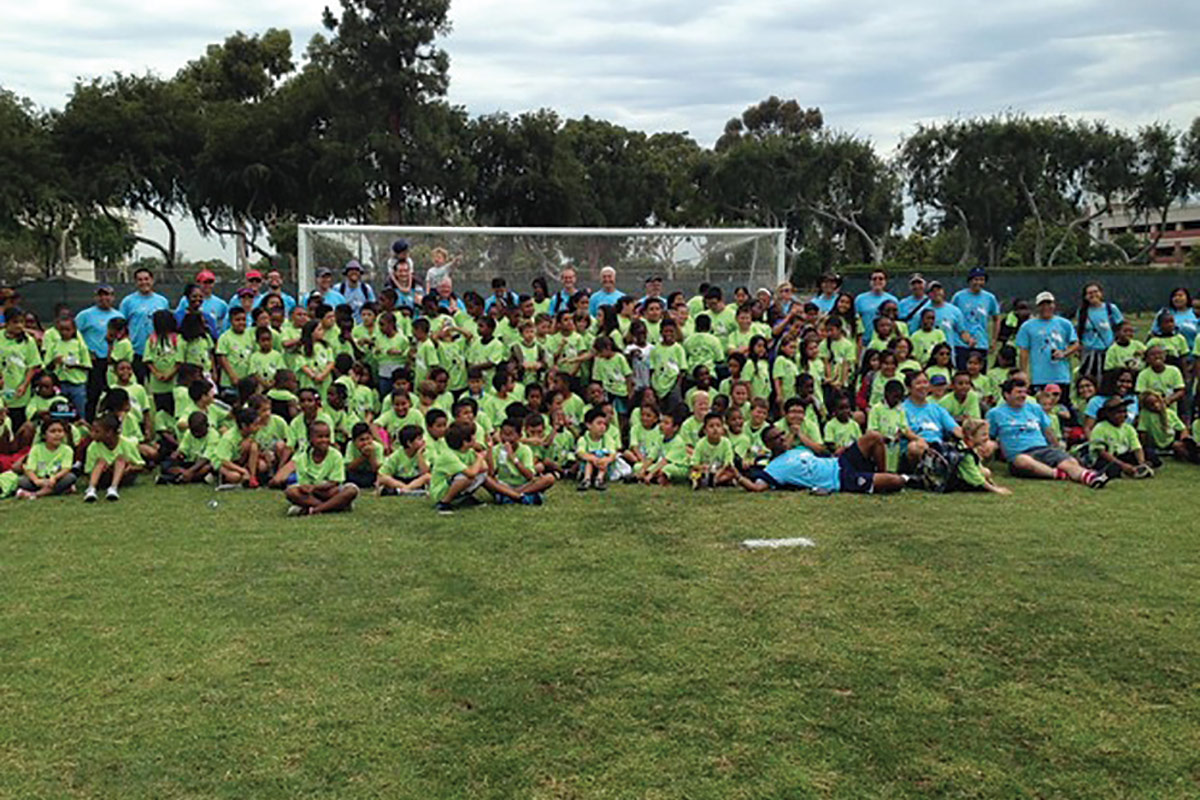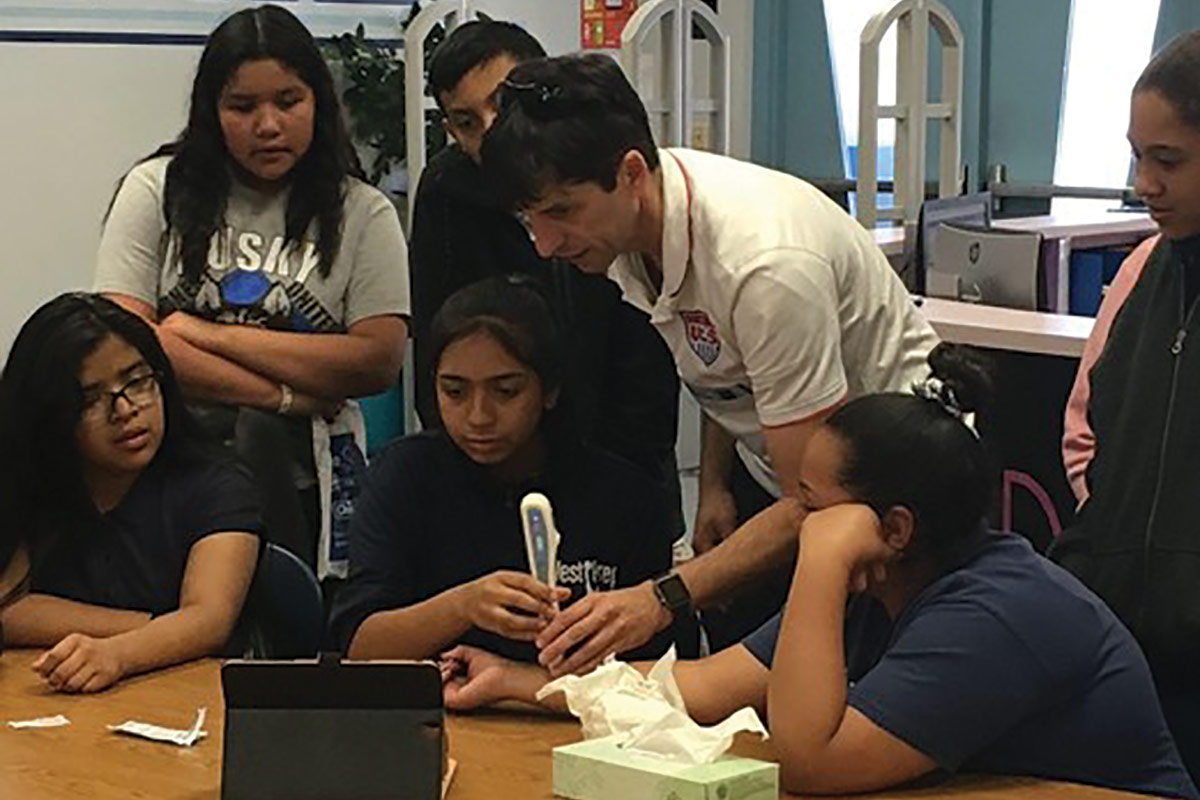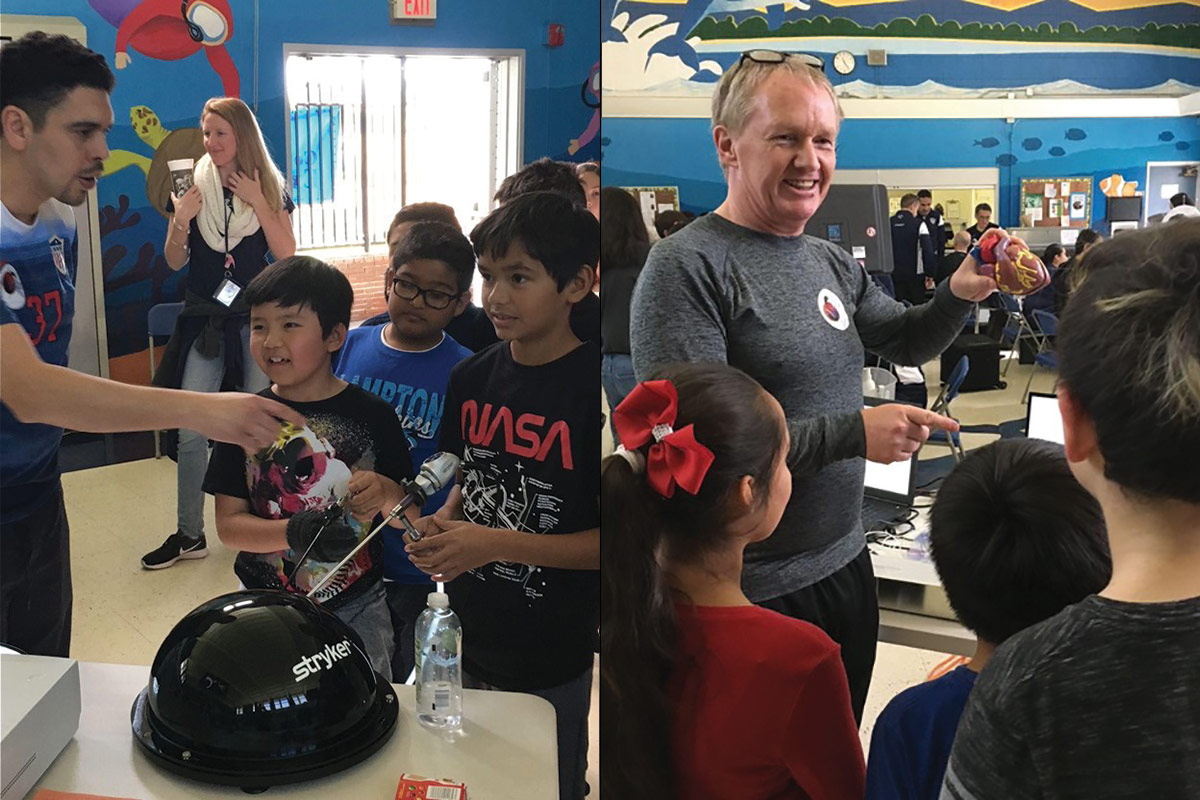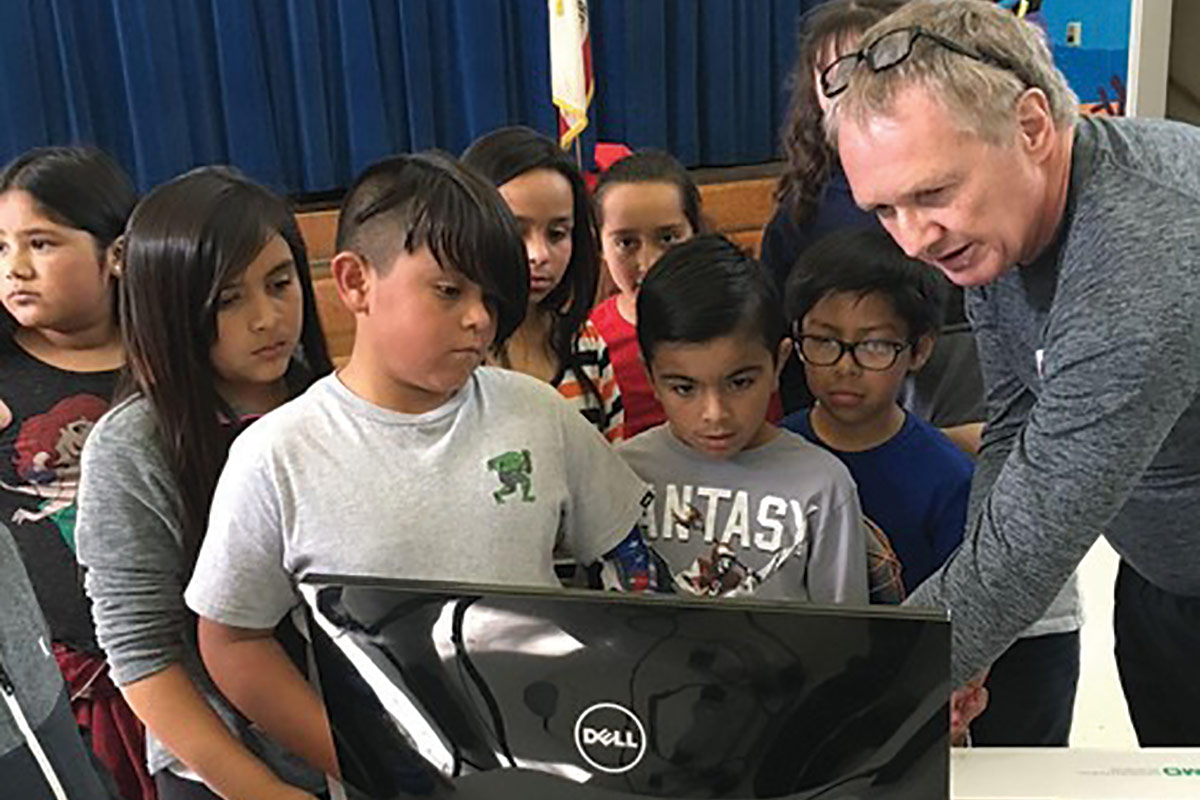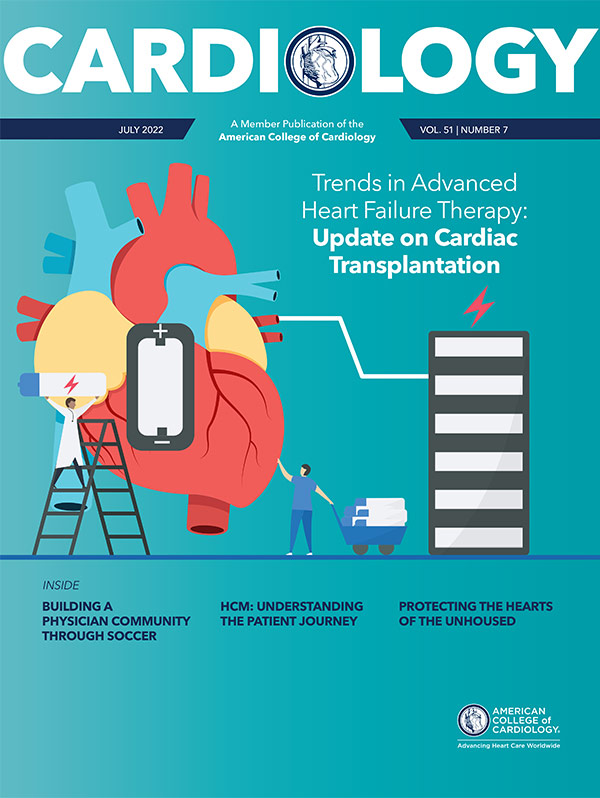Feature | The U.S. Medical Soccer Team: Building a Physician Community Through Soccer
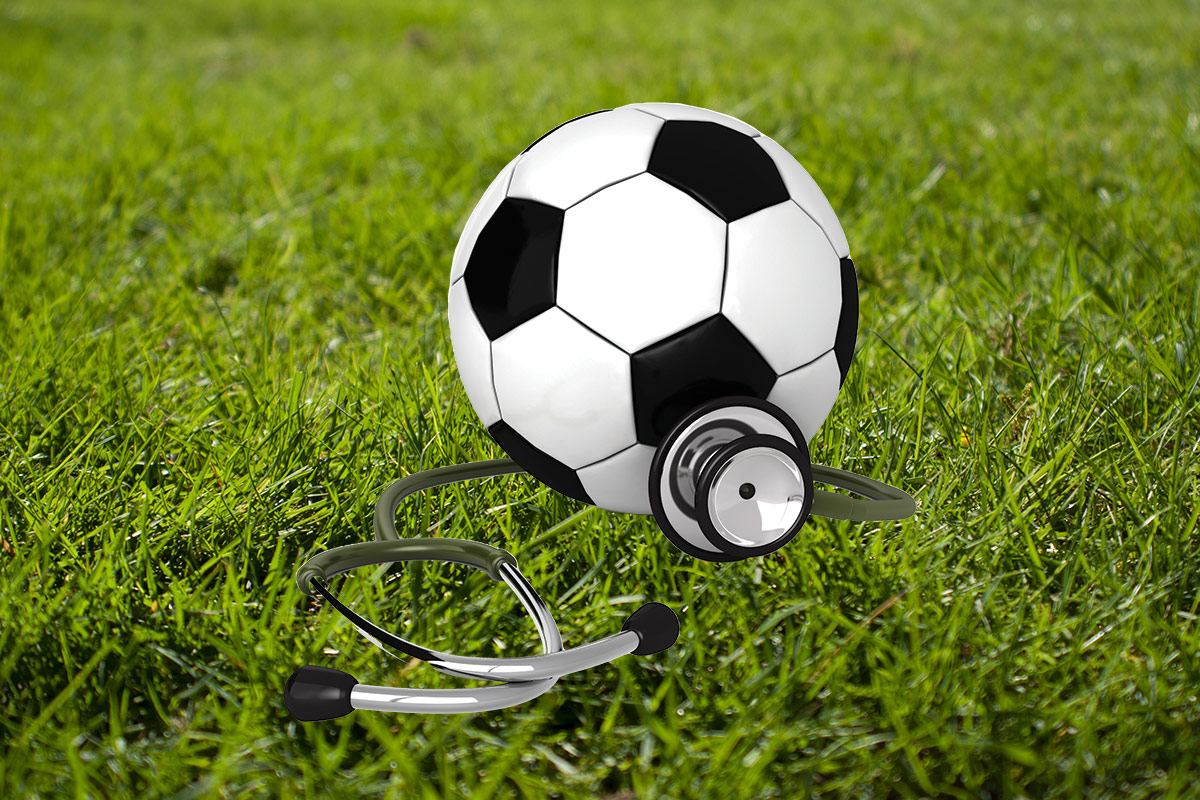
Growing up in the 1980s in the suburbs of Kansas City, I was the neighborhood organizer. Baseball, football, soccer, it didn't matter. I knew everyone's phone numbers, who liked what sport best, who was always in and who always needed coercing. Looking back, being the organizer became a part of my identity. As an athlete, I wasn't good enough to play in competitive leagues and as an only child, I needed the camaraderie of my neighborhood friends to live out my sports dreams.
By the time I arrived at medical school in New Orleans, I was adept at organizing and building community. My close friend (and organizing savant) Ky Tran, MD, and I formed an intramural soccer team with our classmates, organized intramural tournaments and performed community service with our classmates. It was an incredible time of personal growth, where we learned to serve as physicians and to serve as citizens living in a wonderful community.
After graduation, we were able to continue this ethos of service and community through the World Medical Football Championships (WMFC). This international soccer tournament between teams of physicians was missing a U.S. team – just the lane Ky and I need to embark on a journey of organizing the first team.
We intuitively started with our classmates, but they were residents scattered around the country and in no position to travel the world to play soccer. Disappointment led to more disappointments – soccer-playing doctors loved the concept but didn't commit. Our Quixotic quest became a joke to our friends, who knew well our annual cold calls to random doctors who might play soccer.
Clinician Well-Being: What's Your Passion?
Clinician well-being is a critical factor in transforming cardiovascular care and improving heart health and is a Strategic Priority of ACC. Drs. Nayak and Ky Tran and colleagues have found soccer. Share your passion on Twitter by tagging @ACCinTouch and using #CardiologyMag for a chance to be featured in Cardiology this fall. Find resources to help with clinician well-being at ACC.org/ClinicianWellbeing.
Persistence pays, though, and after nine years of recruiting, we had a team of 16 physicians that competed in the 15th Annual WMFC in Innsbruck, Austria. It was an incredible week of soccer, medical education and friendship with physician medical teams from around the world.
The WMFC is predicated on the unique bond between all physicians, regardless of age, nationality or specialty, and based on the shared experience of sacrifice, hard work and patient above self. The U.S. Medical Soccer Team (USMST) we formed is the first and only team from this country and since 2010 it has grown to more than 150 physicians. Every year, about 50 physicians travel the world together to represent our country and profession.
As we head into another exciting FIFA World Cup season, in Qatar this summer, our story will hopefully resonate as part of reflections of the past two years and all that has kept us apart in many ways. The USMST embodies the values of physician wellness, health and education equity and friendship. It has been an incredible journey.
The Soccer
Soccer in the U.S. is a lot like health care in the U.S.: fragmented, expensive and well behind the rest of the world in many ways. The incredible success of the U.S. Women's National Team has helped transcend barriers for the growth of soccer, but internationally, America's lack of progress in men's soccer is considered a bit of an oddity given our resources. This is the backdrop of an American soccer team competing in an international tournament – albeit one of physicians.
The USMST came together with a mix of players of diverse nationalities, ages and skill levels. We all learned how hard it is to take time out of busy work and family schedules, travel around the country for weekend practice sessions, and return to work on Monday morning.
From former college athletes to the weekend warriors who simply love the game, we all forged bonds on the pitch while cementing friendships off it. We hold three weekend practice sessions around the country as we prepare to compete in the annual WMFC. The weekends are intense, with many hours of soccer, but also socializing over team dinners, outreach events and the occasional medical conference. To many, these weekend sessions are the reason to play with USMST – bonding with like-minded physicians who share a passion for soccer, travel, community service and education is an incredible experience.
When USMST first joined the World Medical Football Federation (the governing body of WMFC), there were only 10 international teams participating. The tournament has grown over the past 10+ years, with 26 countries participating in 2019 in Cancun, Mexico. The competition is intense but fun. Because our team is spread out across the U.S., getting together to practice is challenging and limits our success to some degree. We all train individually, play in our communities and maximize the few weekends we have together to ensure we are representing ourselves and our country well on the field. We are always looking for good soccer players, but our true focus is finding physicians who share our values of friendship, professionalism and inclusion and this has helped us to grow and flourish.
The WMFC "Medical Exam"
The WMFC will resume this year in Mar de Plata, Argentina, after a two-year hiatus because of the COVID pandemic. As participants have aged, the WMFC has evolved to an "Open" format with physicians of all ages and a "Masters" format for those over 45. USMST participates in both formats, ensuring our organization is consistently bringing in young participants and supporting older participants.
The WMFC began in 1995 in Barcelona and has a storied history, replete with tales of political strife, personal grief and death threats. And like with most international sports competitions, doping. But in the WMFC this means bringing in players who aren't physicians to gain a competitive advantage. The antidote? A good-natured medical exam at the end of a match to prove one is a physician; each team is allowed to challenge two players on a team and often they are the best players.
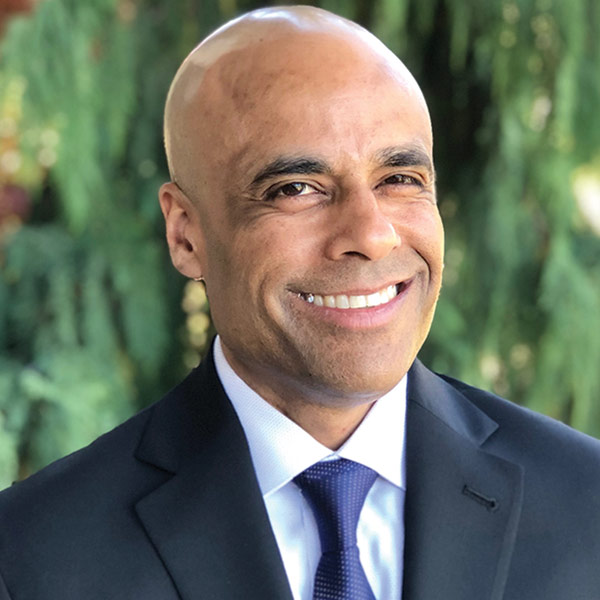
Gautam Nayak, MD, FACC
When the USMST had the honor to host the tournament in 2015, we created a "languageless" medical exam with pictures only. Even if a player fails, further questioning by the organizers typically helps assess medical knowledge and qualifications and a player's explanation for wrong answers often is vindication. At the WMFC, a soccer pitch replaces the halls of a hospital, but the trust we share makes the competition meaningful beyond the result.
Our time at the WMFC, win or lose, has become an indelible part of our team culture. We've made friends from around the world, often forging ties with physicians from other countries and fostering research opportunities, clerkships, assistance on medical matters, and even getting caught in political headwinds. The World Medical Football Federation has become a valuable network of colleagues poised to help in any situation. The ongoing crisis in Ukraine underscores the importance of maintaining these connections. The players are more than convenient international competitors – they are close friends.
The Education
The academic talent in our organization is outstanding. Our team includes physicians across most specialties from over 20 states. Many come from strong academic medical centers and others are community physicians devoted to advancing the profession. Interestingly, most of us relate to each other based on our prowess on the soccer field and not specialty credentials. Nonetheless, over the years, a highlight of our time together includes medical education.
In parallel with the WMFC, each tournament holds a Global Congress on Medicine and Health in Sport.
Each country provides speakers on sports medicine topics for the daily academic conference. The perspective of physicians of diverse ages and experience from the 26 countries that participate in the congress is a highlight of our time spent abroad. While the results of the USMST may be limited on the soccer field, we typically win the day with outstanding talks in the conference.
Based on this success, we created the USMST Physicians Soccer Summit, a weekend in Los Angeles in February where we highlight the academic talent of our physicians while spending the rest of the weekend connecting through soccer. Competing with and against colleagues is fun but watching them share knowledge and communicate their expertise to help others in their professional lives (and ultimately patients) is unforgettable. We are more than a soccer club, but a true community of physicians.
The Community Outreach
Building and serving community is at our core. We now run a youth outreach program called "Healthy, Fit and Smart" that started a decade ago when we connected with a middle school in an underserved part of Los Angeles. The program has three stations: a health station related to nutrition and healthy lifestyle choices; a fitness station where kids engage in fun physical activities; and an education station where the students are exposed to careers in medicine. We leverage the resources of industry partners like Sonosite, Terumo and Stryker, who graciously send representatives and equipment to give kids a hands-on experience with procedures like ultrasound and cardiac catheterization. A toolkit we developed for the program will guide any group of physicians wishing to hold such an event.
The events are immensely popular with the students and fun for us. Participating in our outreach events is a prerequisite for participation with USMST for all players. Integrating health and education equity into our team events is a key part of our identity. Our status as "soccer players representing the United States" gets us in the door, but our role as physician-teachers allows us to make a difference.
The Future
On-Demand Learning:
Care of the Athletic Heart

Missed the latest in sports and exercise cardiology education from the Care of the Athletic Heart course? Catch it now through Sept. 6 on demand to learn guideline-driven, practical, cardiovascular care strategies for the professional, recreational, occupational or tactical athlete. Click here to get started.
The community we have built is the most meaningful part of being involved with our soccer team. It's all about the bonds that have formed between physicians with diverse backgrounds and expertise, united by shared interests and a pledge to one another. It is inspiring to watch the bonds form and friendships be cultivated. And our families share in these friendships.
It has been rewarding to see the growth from the early days making cold calls to convince a skeptical few to see our vision to an engaged unit of doctors. This shared mission and unified purpose means we know our players will show up, whether it is for tournaments or more.
As I grapple with the fallout from the COVID pandemic and the burnout that afflicts our profession, I'm sobered by the lack of an easy answer. While it would oversimplify a complex situation to say the USMST is the solution for burnout, it's clear that maintaining our team connections on a daily basis and knowing we're there for each other helps each of us.
I believe fostering an inclusive community and tapping into the intrinsic motivation that led us to medicine and taking the Hippocratic Oath are important keys to addressing burnout. Creating community is the best way to ensure clinicians remain relevant and combat the various problems in health care in a unified manner. I learned this early in life in my neighborhood, it was amplified in medical school, and now I live this through soccer and other endeavors.
The USMST is a manifestation of an ethos centered on friendship and professionalism and simply channels the "why" of nearly 150 physicians from around the country. We represent all that is great in medicine and we're humbled by the challenges that await as we re-focus our profession on what is truly important. We look forward to making a difference for years to come!

This article was authored by Gautam Nayak, MD, FACC, Confluence Health, Wenatchee, WA, and governor/president, ACC Washington Chapter. For more on the USMST or for a toolbox for creating community events, reach him at gnayak1@yahoo.com.
Clinical Topics: Diabetes and Cardiometabolic Disease, Prevention, Sports and Exercise Cardiology, Exercise, Stress
Keywords: ACC Publications, Cardiology Magazine, Sports, Athletes, Soccer, Return to Sport, Physicians, Athletic Performance, Exercise, Burnout, Professional, Burnout, Psychological
< Back to Listings


